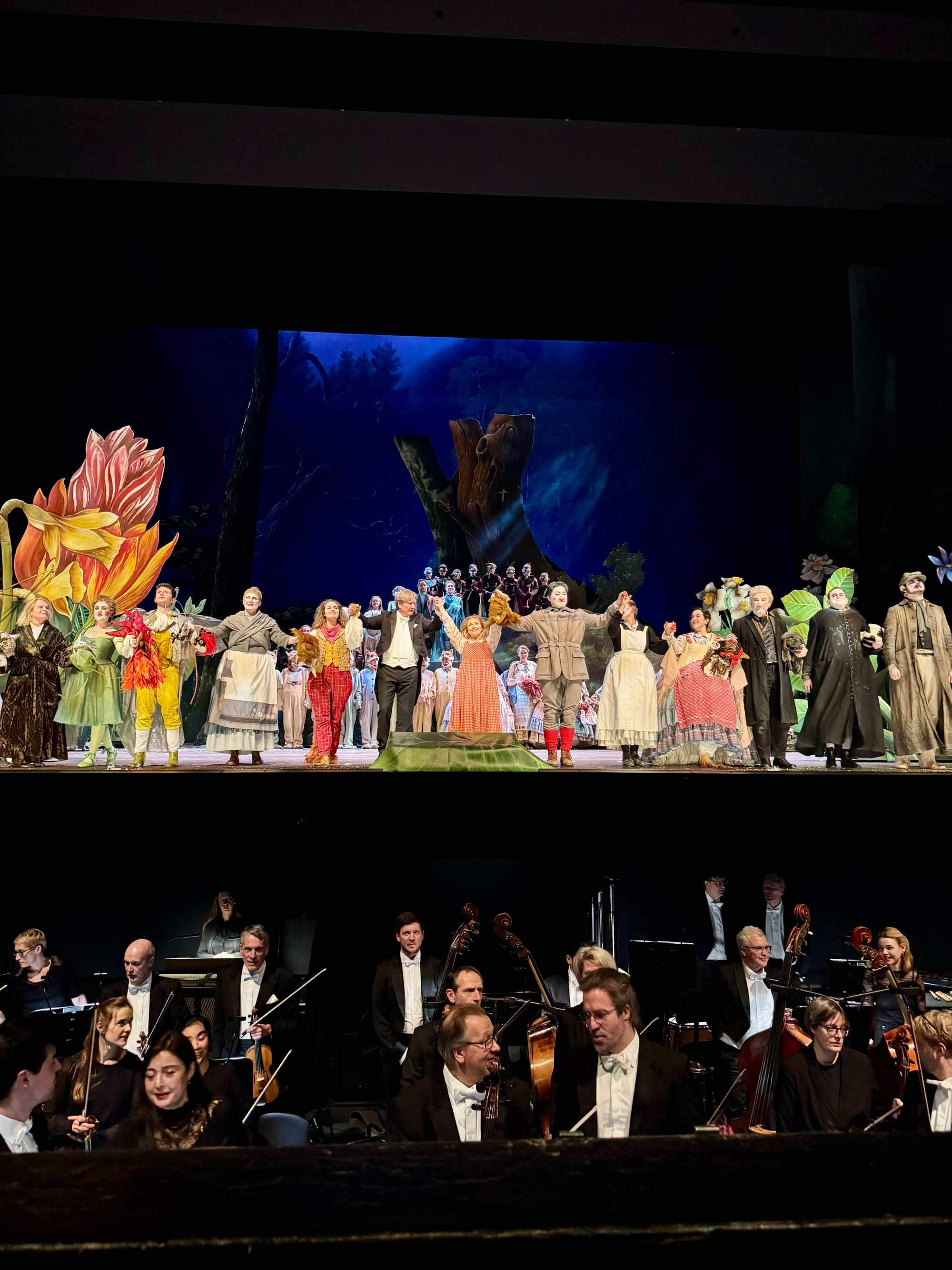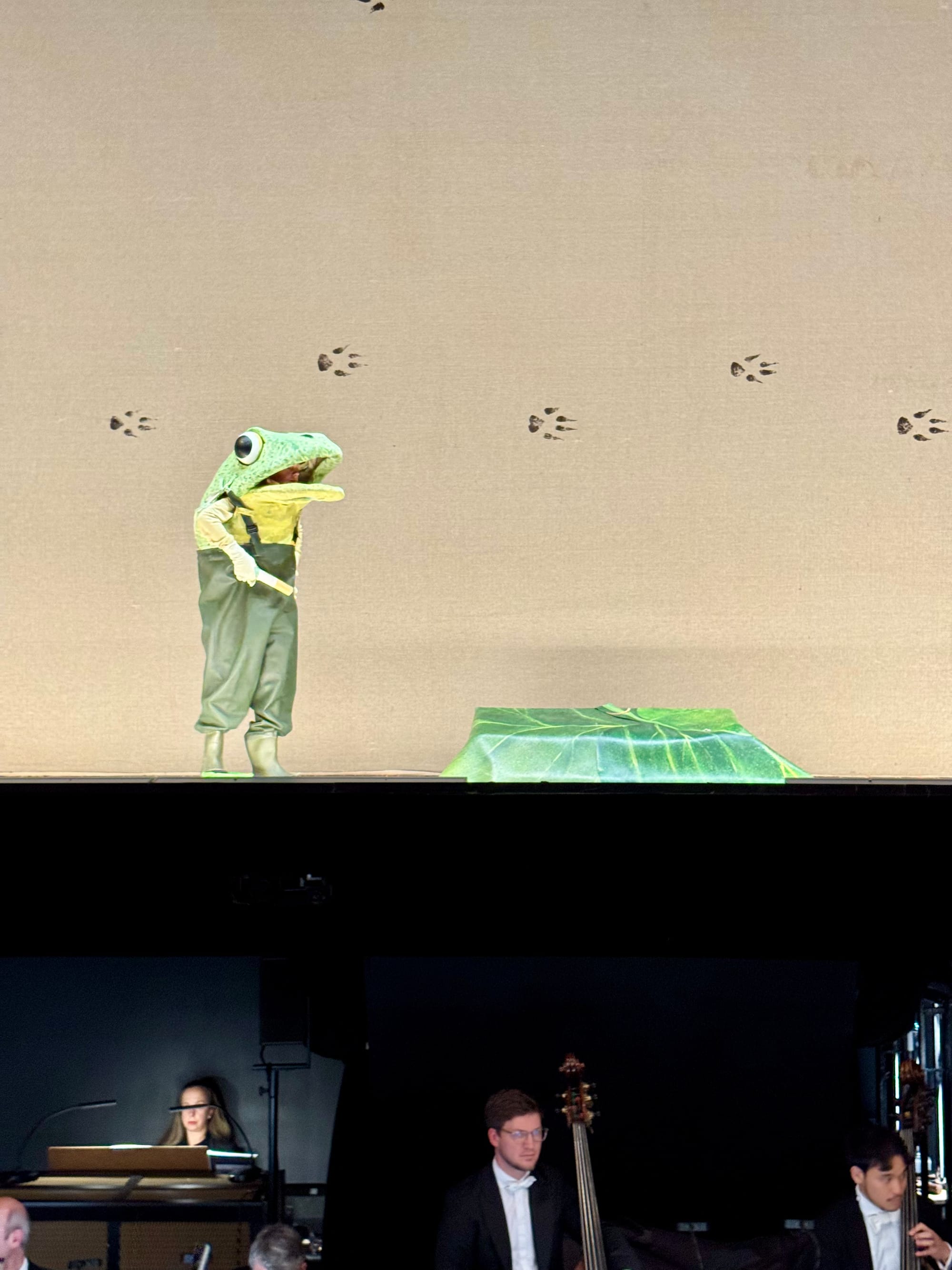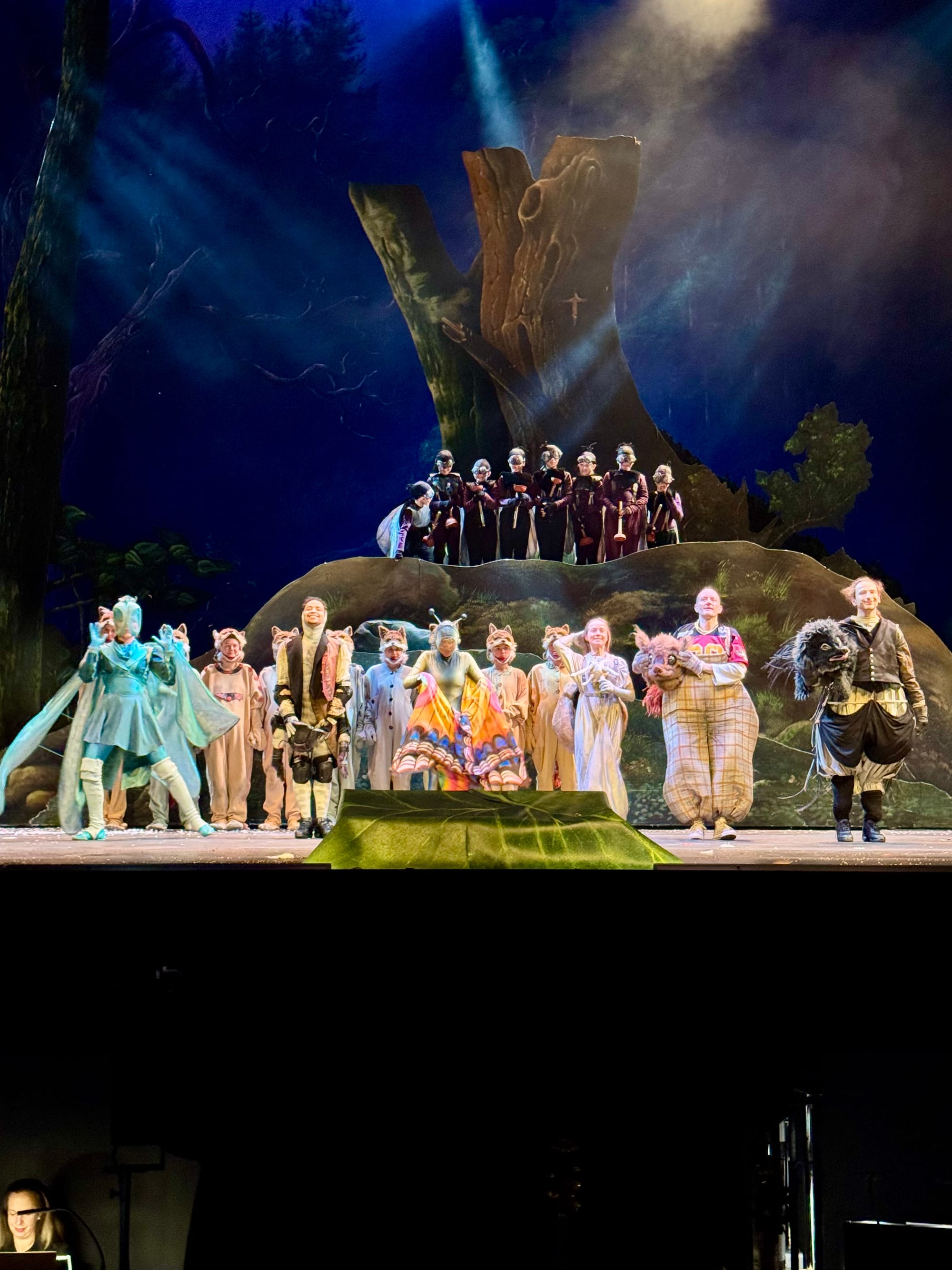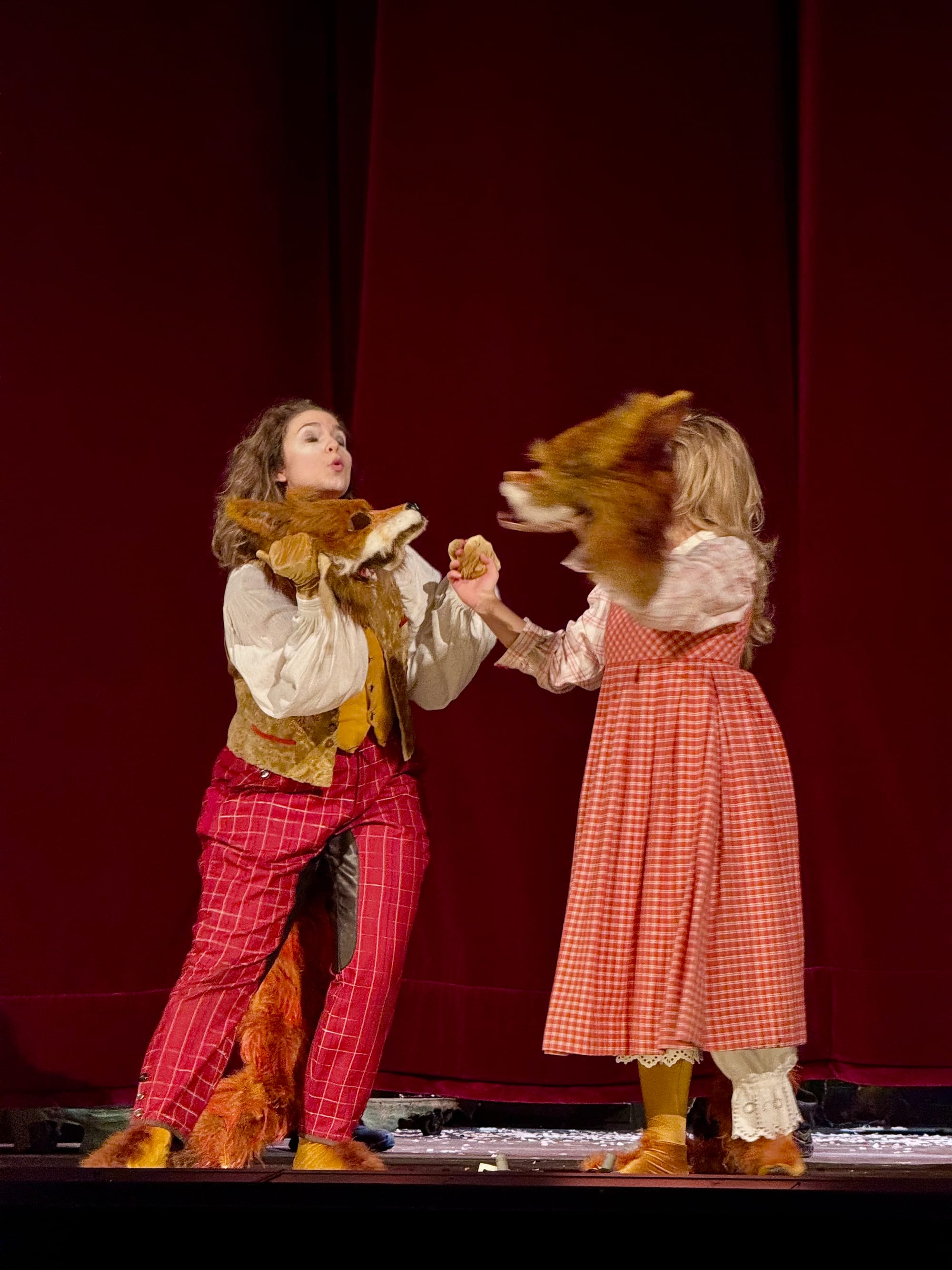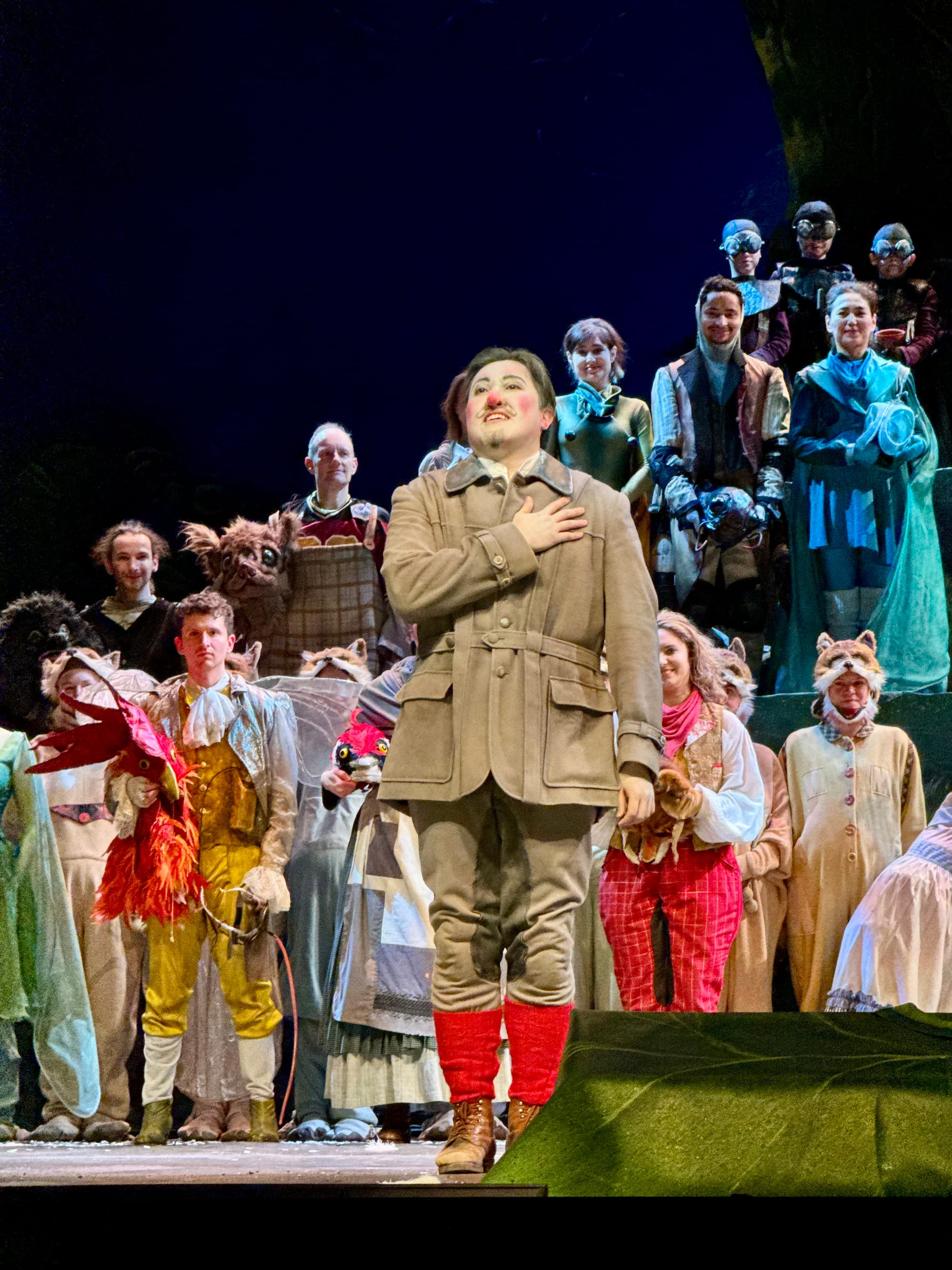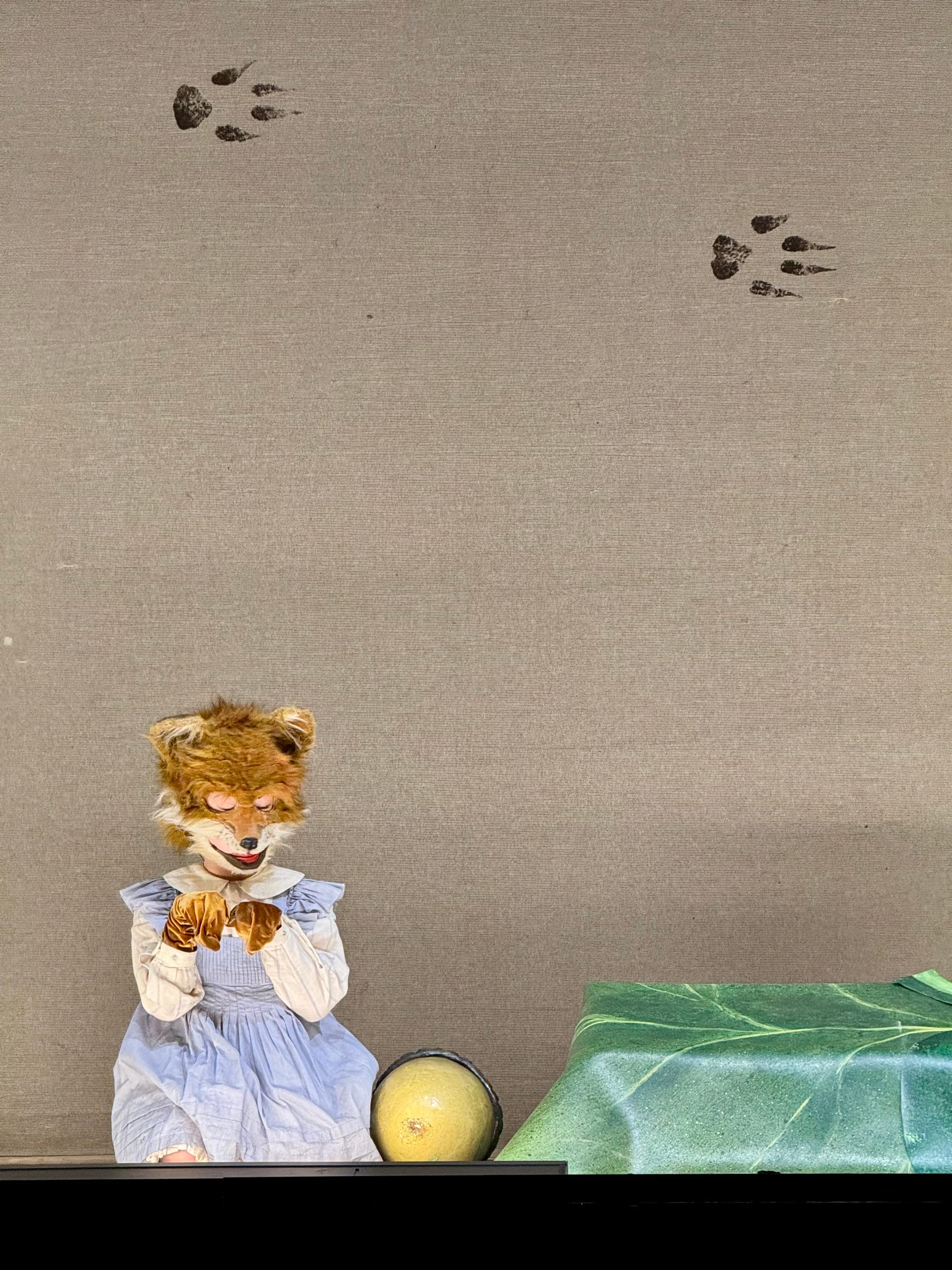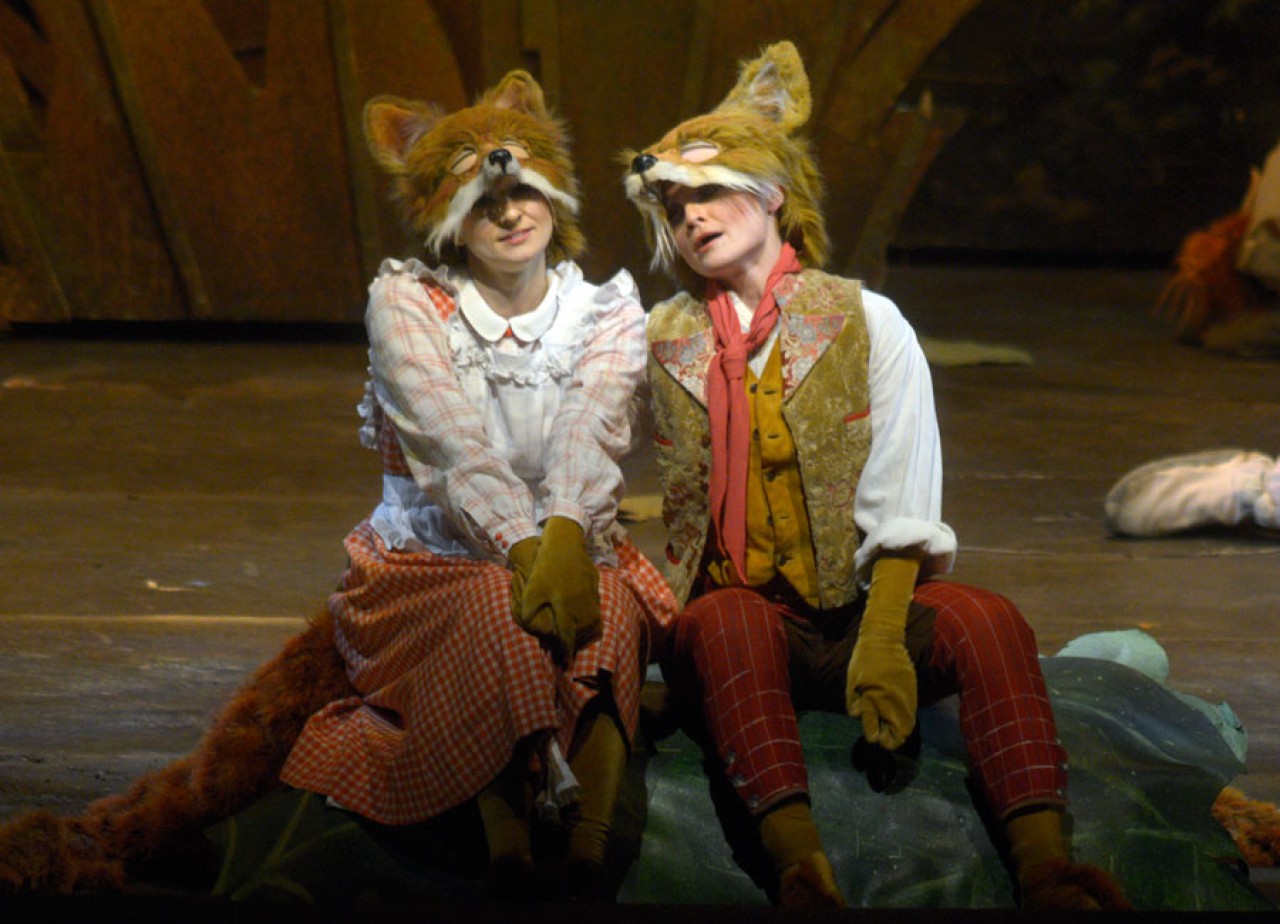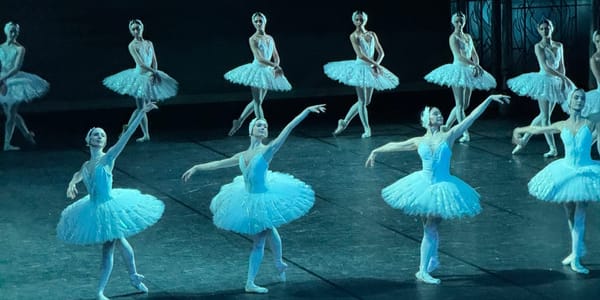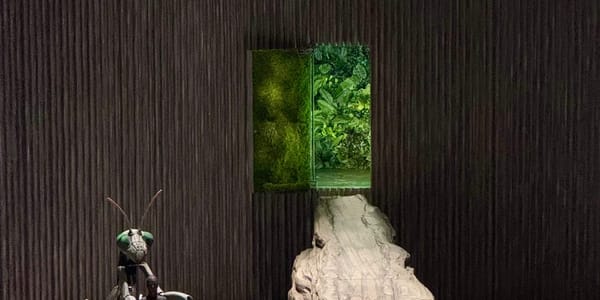Das schlaue Füchslein at Deutsche Oper Berlin
While it might appear that this is a tale for children, the story conveys very adult topics like sexuality, loss of a loved one, revenge, unfulfilled relationships, and regret late in life. As so often with children’s fairytales, two stories are being told in parallel.

⭐️⭐️⭐️
🎭 Das schlaue Füchslein
🎶 Leoš Janáček
💭 Katharina Thalbach, 2000
🏛️ Deutsche Oper Berlin
🗓️ 04.01.2025
“SISTERS, ABOLISH THE OLD ORDER! CREATE A NEW WORLD WHERE YOU GET YOUR FAIR SHARE OF HAPPINESS.”
Kicking off 2025 with one of the most adorable opera productions I’ve ever seen! THE CUNNING LITTLE VIXEN (Das schlaue Füchslein / Příhody lišky Bystroušky) by Leoš Janáček at Deutsche Oper Berlin draws us into a fantastically romantic forest, where we get to follow along the tiniest and most delicate creatures living among the woodwork. A beautiful and wholesome production with great dancing, fantastic singing, and acrobatic flying and crawling.
The stage bursts with color, greenery, and scenic depth, and when larger-than-life boots or hats land among the woodwork, for a moment you’re forgiven for thinking that you yourself have shrunk down to the size of a mosquito. The story follows the life of our cunning little vixen as she navigates a curious childhood in the forest, being caught and raised by a choleric forester, escaping back into the wilderness, and finding love, family, and (spoiler alert) ultimately death.
While it might appear that this is a tale for children, the story conveys very adult topics like sexuality, loss of a loved one, revenge, unfulfilled relationships, and regret late in life. As so often with children’s fairytales, two stories are being told in parallel. In fact, the opera itself is set up as a back-and forth between the magical forest and the harsh reality of the human world, switching between the two at every scene. The forest is inspiring, joyful, full of life; the human world not so much: characters sulk, wallow in regret, and wonder “what could have been”. Even the (brilliant!) makeup makes the humans appear perpetually sad and mopey.
What adds to the secondary “adult”storyline are sexual innuendos, often accompanied by moralizing commentary. When the little vixen and the fox first copulate in the privacy of their den (emphasized by a phallic mushroom growing center stage), it still happens to the horror of the surrounding nosey wood folk. To maintain some form of decency, the two foxes are immediately wed after the little vixen implies that she is now pregnant (perhaps foreshadowed by the “birth” of a fully nude Botticellian Venus from the prompters box during Act I? I have no other explanation but am happy to be challenged).
The VIXEN is also political at times: while still living with the forester, the vixen attempts to liberate the proletariat hens (their first lines marching down the chicken ladder are a repeated “We work, we lay eggs”) from the “oppression” they suffer at the hands of a bourgeois rooster. Vixen jumps onto a barrel, shakes her fist in the air, and delivers a rallying plea of revolution. When the hens fail to gain class consciousness—they cannot imagine a life without a rooster—Vixen kills first him, then his following.
While one might think that this story is one of tragedy—the cunning little vixen is, after all, shot and killed—this opera is rather a celebration of the eternal circle of life in nature. At the end of the final act, when the forester re-visits the forest, he is confronted by one of the cubs—the next generation of curious vixens. The opera ends on another jolly mixup: just like at the very beginning, a small frog jumps on the forester. To avoid confusion when being cursed, he proclaims: “I’m not the one you think, that was my grandfather! He used to talk a lot about you…”. And so the forest remains full of life, even in the face of death.
